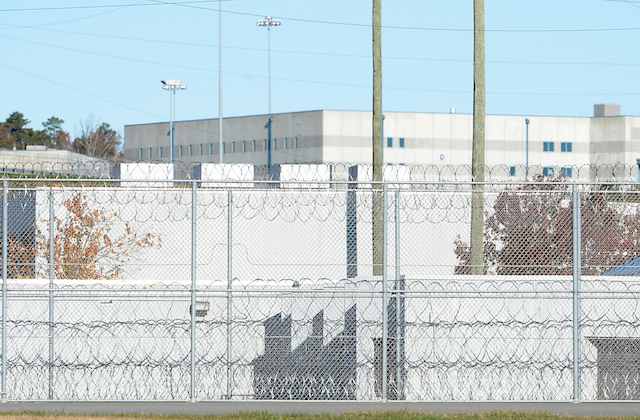The U.S. District Court for the Northern District of Florida just ruled that Jefferson County’s practice of gerrymandering districts—drawing their boundaries to give one party a numerical advantage—with large prison populations is unconstitutional.
The 14th Amendment didn’t just grant the recently freed slaves the right to vote. It also guaranteed “equal protection of the laws.” In the ’60s—in response to White officials who sought to dilute the power of majority-Black districts—the Supreme Court interpreted that clause as the “one person, one vote” principle, which essentially says that everyone’s vote should hold the same political weight. In practice, that means that political districts should contain a roughly equal number of people.
In his March 19 decision for Calvin et al. v. Jefferson County, Judge Mark E. Walker found that when Jefferson County officials put non-voting inmates in district three and then counted the residents of the Jefferson Correctional Institution (JCI) when drawing electoral maps, it gave extra weight to the votes of the other people living there.
In the case, the American Civil Liberties Union (ACLU) represented Jefferson County residents who felt their votes didn’t matter as much beside the residents of district three. ACLU attorney Nancy Abudu told ThinkProgress that the nearly 1,200 inmates account for 43 percent of the voting age population in the district.
People of color make up 37.9 percent of the county population in Jefferson County. While race and ethnicity stats are unavailable for JCI specifically, within the Florida Department of Corrections, people of color represent 52.5 percent of the population.
Walker concluded his summary judgment with the following:
Defendants argue vigorously that excluding the JCI inmates from the population base for districting purposes would be “arbitrary.” The opposite is true—including them in the population base is arbitrary. The inmates at JCI, unlike aliens, children, etc. living in Jefferson County, are not meaningfully affected by the decisions of the Boards. To say they are “constituents” of the Board representatives from District 3 is to diminish the term constituent. To treat the inmates the same as actual constituents makes no sense under any theory of one person, one vote, and indeed under any theory of representative democracy. Furthermore, such treatment greatly dilutes the voting and representational strength of denizens in other districts. Jefferson County’s districting scheme for its Board of County Commissioners and School Board therefore violates the Equal Protection Clause.
County officials must submit a proposed redistricting plan by April 4, and may not use the current district maps for school board and commissioner elections that are scheduled for this June.
In December, the Supreme Court heard arguments in two cases that challenge the “one person, one vote” doctrine. The SCOTUS decision is expected later this session. It’s unknown how the absence of Justice Antonin Scalia will impact the outcome.
